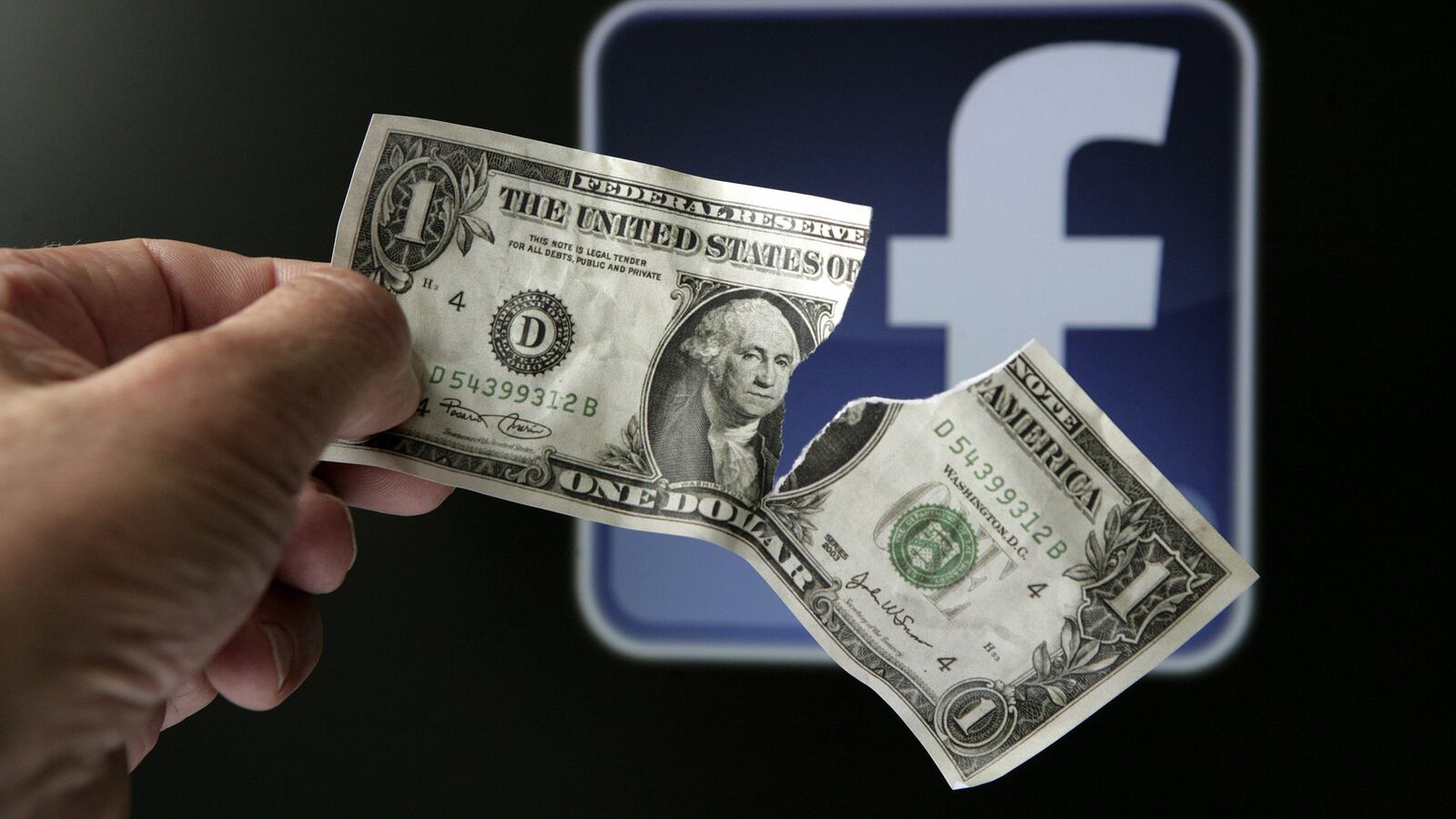This story originally appeared in The Daily Beast newsletter, Pay Dirt. Sign up for that newsletter: HERE.
A deep-pocketed progressive startup with backing from some big names in Silicon Valley is behind a network of companies running thousands of targeted political ads that have veered into the bizarre and occasionally deceptive, PAY DIRT has learned.
The firm, digital-media startup MotiveAI, has created a handful of limited liability companies in Colorado through which it’s purchased ads on at least 44 different Facebook pages. Some target people based on demographics, including women, Latinos, African Americans, students, seniors, military veterans, Christians, and, for lack of a better term, bros. Others present themselves as local news outlets. Some are explicitly left-leaning, while others feign support for President Donald Trump in an effort to undercut some of his priorities.
PAY DIRT revealed that network of advertisers in last week’s issue, which examined some of its more outlandish Facebook ads. A source familiar with MotiveAI’s work has since confirmed that the firm is responsible for them.
That source described the firm’s kitchen-sink approach as a way to present its political perspective in ways that would appeal to specific subgroups that the company hopes will “make better political decisions.” MotiveAI has done no work for campaigns or political action committees, the source said, but it is unmistakably progressive and anti-Trump.
Its deep foray into political messaging on Facebook is a microcosm of a shift toward digital advertising during the 2018 election cycle, and the increasingly creative means by which political and policy groups are using digital media to craft unorthodox and often untraceable ad campaigns. That shift is also testing the limits of laws governing disclosure of the money and interests behind that advertising.
MotiveAI was formed last year by Chief Executive Dan Fletcher, a media industry veteran who previously worked at Facebook, Bloomberg, and Vice News. Since then, the firm has raised at least $11.5 million in financing, according to Securities and Exchange Commission filings, including a $10 million equity round this year.
Among MotiveAI’s financial backers is Reid Hoffman, the billionaire co-founder and executive chairman of LinkedIn, according to a source familiar with Hoffman’s involvement. (Fletcher declined to comment on the company’s finances beyond saying that his investors are “all Americans.”) Hoffman has poured money into Democratic politicking since Trump’s election, which came in spite of his more unorthodox advocacy efforts during the 2016 campaign, such as an anti-Trump card game in the mold of the popular Cards Against Humanity.
MotiveAI’s board also includes some notable tech talent. In addition to Fletcher, its directors include Gina Bianchini, the co-founder and former CEO of social-media startup Ning, and Adrian Sanders, a technology executive who, with Fletcher, co-founded the journalism crowdfunding platform Beacon Reader.
The combination of big money and tech savvy makes MotiveAI a sudden player in digital political advertising, coming as other high-dollar political groups, particularly on the Democratic side, explore what political persuasion looks like in the internet era—and how it can be more creative and effective than simply uploading traditional television ads to YouTube, or pasting the text of a direct-mail piece into a fundraising email.
But it is also testing the limits of federal campaign-finance laws that are still very much stuck in the 20th century. Facebook’s recent decision to require additional information from its political advertisers revealed the names of four LLCs that MotiveAI has used to mount its advertising campaign. But the involvement of MotiveAI itself is not disclosed, on Facebook or anywhere else, in part because current election laws have weaker disclosure requirements for digital ads than those run on TV and radio, or through direct mail and phone-banking.
“This is a good example of the digital loopholes in our campaign-finance laws,” said Brendan Fischer, the director of federal and Federal Election Commission reform programs at the Campaign Legal Center, an ethics watchdog group. He pointed to MotiveAI ads attacking Republican Senate candidates in competitive states such as North Dakota and Tennessee.
“These ads could be subject to [Federal Election Commission] reporting as ‘electioneering communications’ if they were run on TV or radio, but not when run online,” Fischer explained. “An electioneering communication is defined only as a broadcast ad naming a candidate and run shortly before an election. This means that a political ad subject to legal transparency requirements when aired on TV can remain shrouded in secrecy when that same ad is run online.”
The definition of “electioneering communication” was codified by the McCain-Feingold law of 2002. That’s 16 years of rapid innovation for which lawmakers have yet to account. Until they do, the public generally won’t know if the news sites popping up on their feeds are the work of partisans seeking to sway their vote.
Get the data:
—With additional reporting by Maxwell Tani





